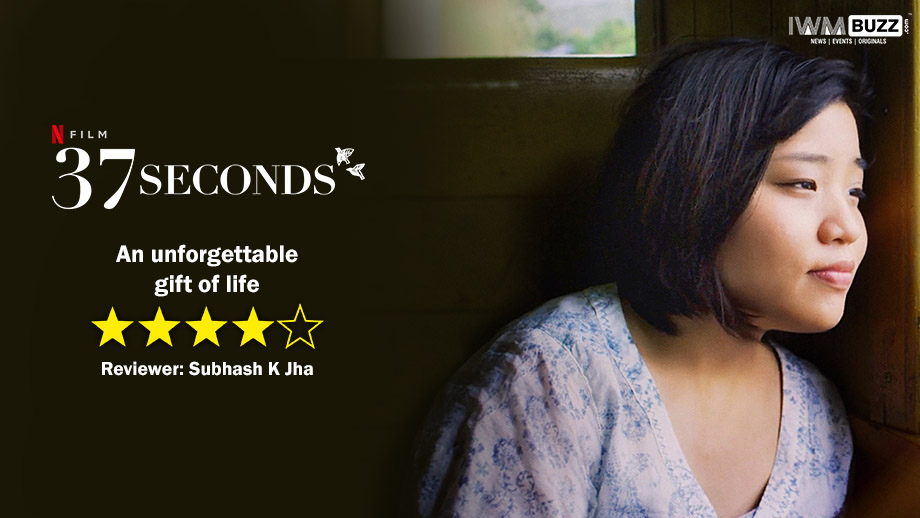Starring: Mei Kayama, Misuzu Kanno, Shunsuke Daito, Makiko Watanabe, Yuka Itaya, Minori Hagiwara
Witten & Directed by Hikari
Rating: **** (4 stars)
Cinema all over the world is turning to repair rather than despair. Films about healing and kindness are much in vogue. And thank God for that! This Japanese gem about a cerebral palsy-stricken wheel-chaired strong-willed animation artiste’s journey from dependency to freedom, is so filled with humanism and compassion that it could easily have become a flouncy syrupy celebration of schmaltz.
37 Seconds (the title refers to the time that the heroine stopped breathing when she was born) is something far more vital than a mere motivational emotion picture. It is so stripped of preaching that it effortlessly ends up giving us lessons in hope at a time when the world is filled with utter despair.
When we first meet Yuma (Mei Kayama) she is wheeling her way home to her mother’s fortress-like protectiveness. It’s the only way a girl destined to disability can survive….or is it? This delicately drawn sketch of life seen from ground-level is so filled with surprises and with such warmth and humour that the theme of self-discovery acquires dilating tantalizing dimensions never seen in films about physically-mentally challenged heroes.
It is refreshing to see the writer-director draw conscious attention to Yuma’s body. By doing so, the film reminds us that the physically disabled have normal carnal cravings. In Sanjay Leela Bhansali’s Black the sexually famished disabled girl (played by Ranu Mukerjee) asks her aging tutor (Amitabh Bachchan) to kiss her as she has never experienced any sexual gratification.
In 37 Seconds Yuma buys the services of a kind warm-hearted gigolo who tries to fulfil her need with gratifying empathy. The sequence is at once acutely poignant and pointedly funny. There is a sexual un-abashedness about the film I’ve never seen before. Yuma is seen naked more than once. Just because she can’t walk doesn’t mean her libido can’t think. Yuma, the wonder woman in a wheelchair wants the s*x so she could be more experienced as a writer. Her propulsive catalyst is an ebullient unrepentant surprisingly sophisticated s*x worker Mai (Makiko Watanabe) who exudes an easy grace and a boundless generosity.
I am surprised at how much kindness Yuma encounters in her journey into self-awakening. In real life, it is not so easy for a disabled to find kindness let alone compassion. Writer-director Hikari purports to throw open the doors and windows of our hearts with an overwhelming idealism that never gets oppressive, even when Yuma meets her Prince Charming Toshiya (Shunsuke Daito) who wheels her around, almost to the end of the world. Yes, they sleep together. But they have no sex.
The film’s build-up towards Yuma’s full flowering is achieved through scenes that are constructed with care and affection. In one stormy confrontation sequence with her harried but ever-smiling mother(played by the brilliant Musuzu Kanno) Yuma accuses the mother of using her daughter’s disability to imprison her emotionally. It is a devastating moment of confrontational ugliness in a film wholeheartedly devoted to selling hope in a supermarket of despondency.
37 Seconds has a multiplicity of brilliant sequences which you will find discussing with friends for a very long time. It questions every normally-abled person’s responsibility towards those who are handicapped, but it doesn’t enjoy making us feel guilty.


